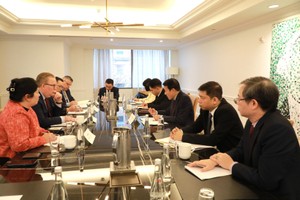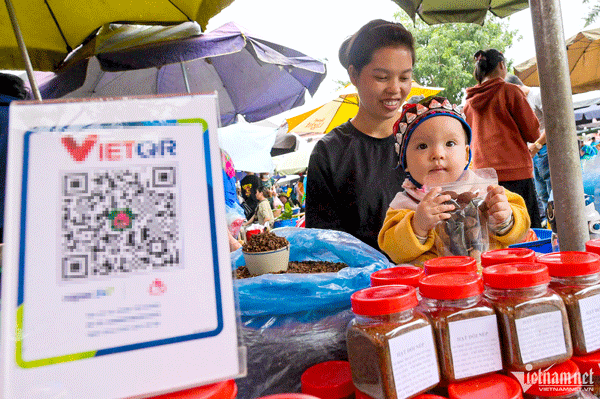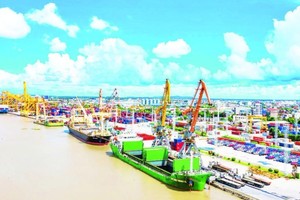 |
An overview of the forum |
Numerous business representatives participating in the event noted that exporting goods to the European market is becoming more difficult due to the constant imposition of technical barriers and new standards by countries, which exceed the exporting capabilities of businesses.
Mr. Ta Hoang Linh, Head of the European-American Market Department at the Ministry of Industry and Trade, revealed that a series of noteworthy regulations, including the Border Carbon Adjustment Mechanism (CBAM), EU Deforestation Regulation (EUDR), and the Corporate Sustainability Due Diligence Directive (CSDDD), have been and will be implemented.
These regulations are expected to significantly impact the trading activities of businesses in both countries. Concurrently, Vietnamese enterprises are compelled to overhaul their production processes to actively participate in the emerging value chain in this market. However, amid declining orders and limited financial resources, Vietnamese businesses find it challenging to adapt their production to comply with these new technical barriers.
In reality, numerous businesses point out that there are considerable risks and uncertainties associated with accessing and expanding market share in the EU. Conversely, the tightening trends in adopting standards for climate, environment, green transition, and sustainable development also present significant challenges for these enterprises.
 |
Mr. Ta Hoang Linh, Head of the European-American Market Department at the Ministry of Industry and Trade, speaks at the event. |
According to Mr. Ta Hoang Linh, the export turnover of Vietnamese goods to this market has seen a substantial decrease of more than two digits from the beginning of the year until now. This decline is particularly notable in product categories, such as phones, computers, garments and textiles, leather and footwear, machinery, and equipment.
The export turnover for these product categories is anticipated to persist in its downward trend during the remaining months of the year, primarily due to the ongoing sluggish economic activities in the EU region. The stringent monetary policy of the European Central Bank (ECB) is exerting a strong impact on the entire EU economy, resulting in reduced credit demand and directly affecting consumption and investment.
Conversely, the market for agricultural products in the EU has shown quite promising growth. Furthermore, the Euro has strengthened by approximately 3.5 percent, reaching nearly US$1.1 for one Euro, marking a 17 percent increase compared to their parity in September 2022.
This situation also brings certain advantages for exporting businesses to this market, as the EUR/VND exchange rate has risen by nearly 3.4 percent since the beginning of the year. Therefore, in addition to efforts to adapt production to meet the new technical barriers in the EU market, businesses need to be flexible in negotiating payment currency to maximize the value of their export orders.
























